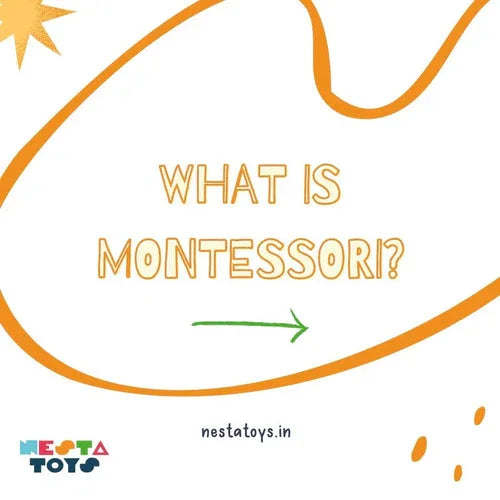Montessori is an educational approach created by Dr. Maria Montessori that focuses on child-centered learning. It focuses on hands-on activities, independence, and respect for each child’s natural development. Children are encouraged to explore and learn at their own pace, with specially designed materials that enhance sensory and cognitive skills.
Montessori classrooms typically have mixed-age groups, fostering peer learning and social growth. The method also highlights the importance of practical life skills like organizing, self-care, and problem-solving. Montessori focuses on developing the whole child—intellectually, socially, emotionally, and physically—while encouraging a love of learning and independence.
Why Parents Should opt for Montessori Education?
- Child-Centered Approach
A core principle of Montessori education is the child-centered approach, where the classroom is organized to support each child’s learning and exploration. Children are encouraged to learn at their own pace and select activities that interest them, fostering a love of learning and a sense of autonomy.
- Hands-On Learning
Montessori education emphasizes hands-on learning, which means that children learn through their senses and by manipulating materials. Montessori classrooms are filled with a variety of materials, such as puzzles, blocks, and other manipulatives, that children can use to learn and explore. These materials are designed to be self-correcting, allowing children to learn from their mistakes and gain a deeper understanding of the concepts they are exploring.
- Individualized Instruction
Another key principle of Montessori education is individualized instruction, where teachers recognize that each child is unique, with their own learning style and pace. Therefore, they create a learning environment that is tailored to each child's needs and interests. Children are encouraged to learn at their own pace and choose activities that spark their interest, fostering a love of learning and independence.
- Mixed-Age Groups
Montessori classrooms are typically organized in mixed-age groups. This means that children of different ages are grouped together in the same classroom. This approach allows children to learn from each other and to develop social skills. Older children can serve as mentors and role models for younger ones, while younger children learn from their example. This approach also allows children to progress at their own pace and challenge themselves.
- Emphasis on Practical Life Skills
Montessori education places a strong emphasis on practical life skills. Children are taught how to take care of themselves and their environment. They learn how to dress themselves, prepare food, and clean up after themselves. These skills foster independence, self-reliance, and a sense of responsibility, while also helping children develop respect for their environment.
- Integrated Curriculum
Montessori education is based on an integrated curriculum. This means that different subjects are taught in an interconnected way. For example, science and math concepts may be introduced through a hands-on activity that involves building and measuring. This approach helps children develop a deeper understanding of the concepts they are learning and encourages them to make connections between different subjects.
- Respect for the Child
Respect for the child is a fundamental principle of Montessori education. Montessori teachers believe that children should be treated with respect and dignity. They believe that children are capable of learning and growing and should be given the opportunity to do so in a supportive, nurturing environment. Montessori teachers also encourage children to be independent and to take responsibility for their own learning.
- Research-Based Approach
Montessori education is based on research into how children learn and develop. Dr. Maria Montessori was a physician and scientist who studied child development and education. The Montessori method is based on Dr. Montessori's observations and research into how children learn best. It has been shown to effectively promote academic achievement, social and emotional development, and self-regulation.
In conclusion, Montessori education is a unique and effective approach to early learning that emphasizes hands-on learning, individual












